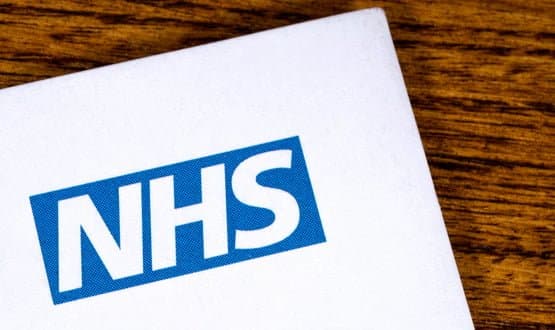Digital Health News confirms new NHSX unit to oversee digital transformation
- 19 February 2019

A new unit to oversee digital transformation of the health and care system is to be created, Digital Health News can confirm.
Given the working name NHSX, the organisation is to bring together the Department of Health and Social Care, NHS England and NHS Improvement.
It will have “oversight” of NHS Digital, according to an email from Simon Stevens and Ian Dalton which announces the unit and which has been seen by Digital Health News.
The email also states the unit will be led by a new CEO.
The NHS England and Improvement chief executives state the individual will report to the secretary of state for health and social care, the chief executives of NHS England and NHS Improvement, as well as the permanent secretary of the Department of Health and Social Care.
In a separate email, sent to NHS Digital staff and also seen by Digital Health News, Sarah Wilkinson said she expects that NHSX “will define” NHS Digital’s future “remit as an organisation”.
NHS Digital’s chief executive said in its initial form the body would “assume responsibility for a small number of areas of work where NHSD has previously led”.
She sought to reassure staff that, in the near term, NHS Digital’s “book of work” won’t change.
However she said that in the medium term, “as NHSX considers the appropriate long-term agenda”, there may “of course” be “strategic shifts that manifest in changes to the work that we are commissioned to deliver”.
She positioned the creation of NHSX as “essentially” creating “a new unitary commissioner for the majority of our work as an organisation”.
“We must continue to do everything we can to justify our privileged position as the prime digital, data and technology delivery partner for the NHS and to ensure we can meet what we expect to be an escalation in ambition and demand,” she said.
The Department of Health and Social Care has confirmed the responsibilities of NHSX will include:
- Coordination and consistency: Setting national policy and developing best practice for NHS technology, digital and data – including data-sharing and transparency.
- Setting standards: Developing, agreeing and mandating clear standards for the use of technology in the NHS. Ensuring that NHS systems can talk to each other across the entire health and care system and the NHS can incorporate the latest innovations without breaking the technical plumbing underneath.
- Driving implementation: Helping to improve clinical care by delivering agile, user-focused projects. Developing digital care pathways and solving administrative challenges across the NHS and empowering developers and data analysts internally and externally to drive forward technological change.
- Radical innovation: Supporting the use of new, emergent and effective technologies by the NHS, both by working with industry and via its own prototyping and development capability.
- Common technologies and services: ‘Ensuring that common technologies and services, including the NHS App, are designed so that so that trusts and surgeries don’t have to reinvent the wheel each time. Ensuring that all source code is open by default so that anyone who wants to write code for the NHS can see what we need.
- Reforming procurement: Helping the NHS buy the right technology through the application of technology standards, streamlined spend controls and new procurement frameworks that support our standards.
- Cyber policy: Setting national strategy and mandating cyber security standards, so that NHS and social care systems have security designed in from the start.
- Digital capability: Championing and developing digital training, skills and culture so our staff are digital-ready.
- Governance: delivering an efficient process for technology spend, domain name management and website security. The effectiveness of governance arrangements will be regularly reviewed.





17 Comments
Will they be able to provide policies that don’t contradict information elsewhere, such as saying ALL .Gov.UK email addresses are secure and OK to send mail to from NHS.net when that’s completely untrue?
Ironically X is commonly used as representing an unknown value.
NHS digital was digital in name only. Essentially hosted Office 365 email. Massive scope for technology in the NHS given that majority of notes in paper etc.
It would be good to know how much this new unit will cost in order to judge whether the likely effects are worth the cost to the NHS budget. One initial observation is that reporting to four different bosses is rarely an efficient set up.
You might want to take a look at this: https://digital.nhs.uk/services NHS mail is supported mainly by Accenture!
Hello people
On a positive spin, this is massively a BIG welcome development with 10 thumbs up.
The introduction of NHSX is simply to make it all digital and to improve the overall standard of service. In fact it will be a magical outcome within 1year alone. This will address all the bottlenecks and bureaucracy especially for application for healthcare funds approval etc across England….this is definitely a welcome move…kudos to the MPs for coming up with this brilliant idea
Welcome to whom, exactly? We have been getting the positive spin for years. How about a bit of reality. “Make it all digital” does not equate to “improvement of service”. That is the BIG lie.
Definitely not more dead wood for the government’s next bonfire of the quangos, no, definitely nothing like that……
It’s an absolute disaster for the NHS. I’ve worked for NHSD and NHSE. There is already way too many organisations, politics, inter and extra organisation politics. This will further increase this problem making it more unclear who owns policy, strategy and fundamentally controls delivery of digital service. You will find that the majority of NHSD and NHSE ex colleagues don’t want this to happen and instead want a reduction in the amount of organisations. How does fit in with digital strategies and delivery of life sciences, public health England etc. It’s all a distorted mess. Digital delivery is slow in the NHS due to there being too many cooks in the kitchen. This further exacerbates the issue. How are you going to deliver in an agile iterative environment a digital product when you have to get agreement across several organisations. If all the other arms length bodies collapsed into NHSX then it works. If not it doesn’t and has been proven not to. This will just create more management overhead and cost for the NHS paying for more management, project managers and executives. NHS Digital delivery requires more delivery and skilled engineers. Save the cost of setting this up and give back to the NHS frontline, this would be a better way of spending tax payers money. Look internally at the arms length bodies as they stand, consolidate and reduce beauroachrasy therfore increasing digital delivery. Look at how the NHS obtains highly skilled engineers when it pays below industry standard rates etc. Has anyone actually spoken to staff in arms length NHS bodies at the coal face to determine the issues, thus the potential solutions. I know they haven’t. The NHS will not make digital transformation happen in a positive cost effective way with another arms length body.
@Dan D – subtle irony is lost on this readership 🙂
This sounds very much like the digital tail wagging the healthcare dog. That has been the case for a long time, but now it is official. It also reveals that data protection law according to the NHS is now officially independent of data protection law – they make their own rules. That is nothing new either but we now have a Ministry of Justice plus an NHS Ministry of Injustice, so the NHS can be officially immune from the law. It just gets better and better. Just when Brexit will cut off a lot of escape routes. Joining ISIS is beginning to look like an option worth considering. Why on earth would anyone want to come back?
Is the X supposed to stand for something? Or has it been marked already , didn’t get a tick!
Well that won’t be a governance nightmare for the “CEO” until the detail is clear, judgement will be reserved but look Rome’s burning let’s create another layer; but who knows it could be great. As Bill Gates once said “you have a meeting to make a decision not to decide on the question” I just fear this is just more highly paid people deciding on the questions.
“Deciding the questions” : yes,in a manner of speaking. My fear is more highly paid people with the job of suppressing the questions so Hancock and Co don’t need to be bothered with accountability. A more transparent name would be NHSODI (NHS Obfuscation, Duplicity and Impenetrability), but the whole point is that this extra layer is not about transparency, quite the reverse. Hence NHSX. Probably NHSD will be tasked with fielding the questions and they, of course, will always say, quite truthfully, “We know nuffink”.
May need to come up with a name change though …
https://nhsx.uk
“Welcome to NHSx, the NHS Leadership Academy’s online leadership community.”
It’s OK Gregg, we’re used to NHSD being generally incompetent at forward planning so NHSX is only going to be an oversight committee for the friendless, should be a walk in the park …
A rearranging of chairs and Chairs I’m guessing
Comments are closed.